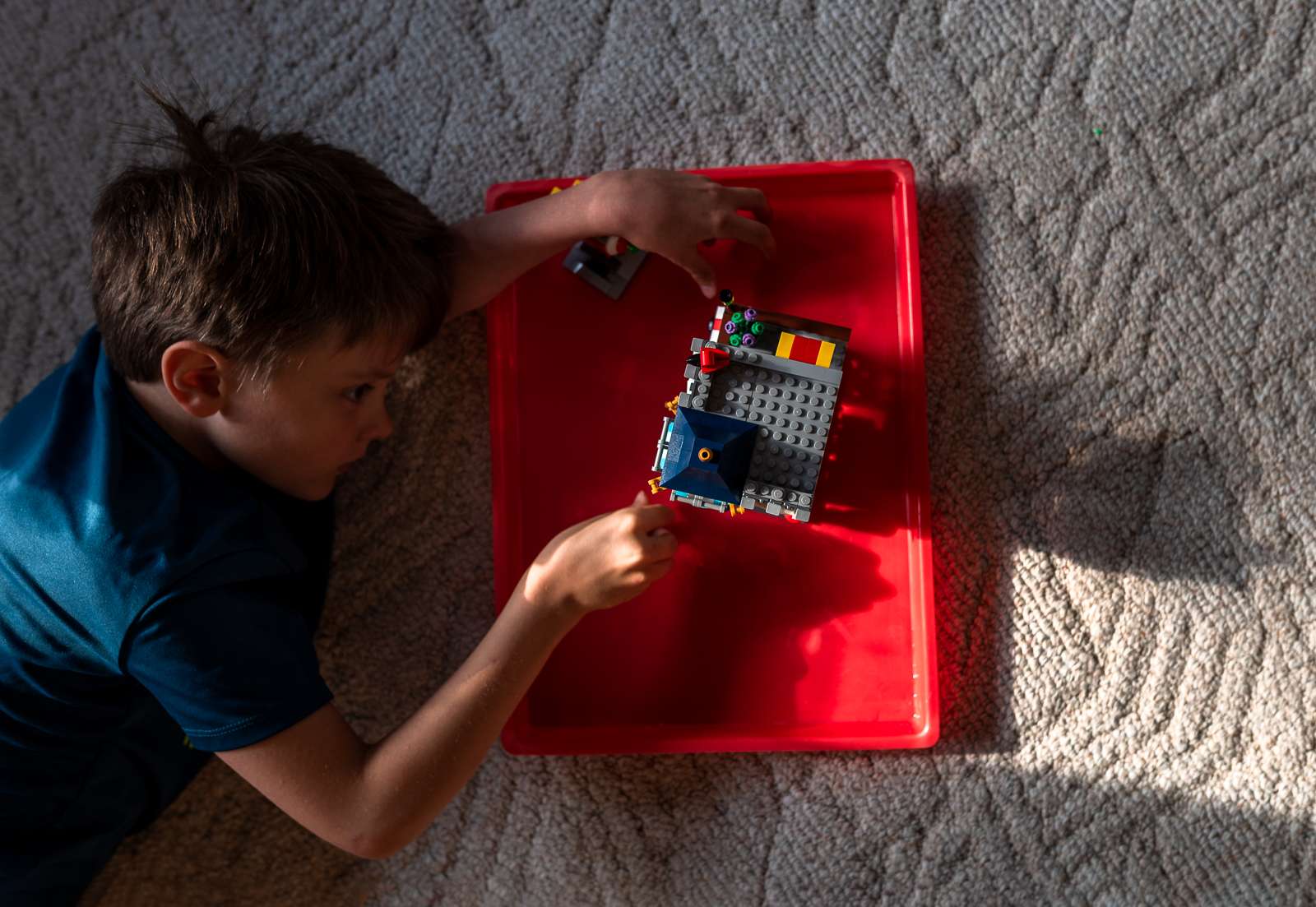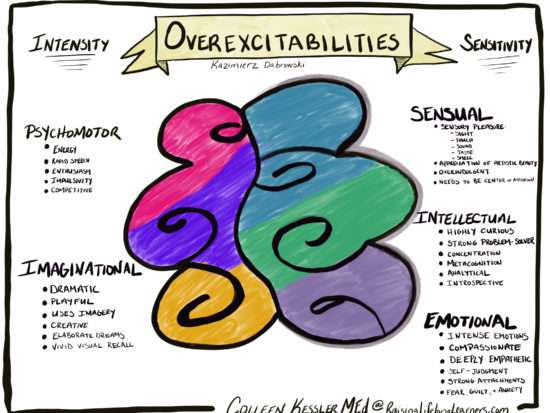The Intensity of Homeschooling a Gifted Child ~
Written by Colleen Kessler of Raising Lifelong Learners
We often think of giftedness as just that, a gift. While it certainly can be, it is not uncommon for academically and/or developmentally advanced children to also have a range of intense and asynchronous behaviors.
The truth is, homeschooling a gifted child sometimes feels like it would better be described as homeschooling an intense child.
For example, this morning, we needed to be out of the house at a certain time to head to co-op.
All within a span of 15 minutes, one child was complaining about the seams in his socks, while another was having an animated singalong with her stuffed animals, completely oblivious to the fact that she has her shirt on backwards and her shoes on the wrong feet. Another was extremely anxious, and trying to make sure everyone has what they need to get out the door so she doesn’t have to walk into her class late and upset her co-op teacher.
Why Gifted Children Are So Intense
My family is a blend of what Polish psychologist/psychiatrist Kazimierz Dabrowski called overexcitabilities. Gifted children are highly likely to be more intense than their typical peers. This increased awareness, sensitivity, and intensity can present challenges that make them difficult children to parent.
Learning about these five overexcitabilities has helped me understand my children. It has also better equipped me to help them learn in our homeschool.
What Are The Five Overexcitabilities?
Dabrowski identified five different areas of overexcitabilities as part of his research. While not all gifted kids exhibit overexcitabilities, they are more prevalent among the gifted population than any other.
The five overexcitabilities he identified are psychomotor, sensual, emotional, intellectual, and imaginational.
Psychomotor
Psychomotor overexcitabilities are marked by a constant need to move and expend intense physical energy. Kids with psychomotor overexcitability have drive, they are impulsive, and often show a physical manifestation of their emotions. They may have nervous habits or tics, and may have trouble sleeping.
Sensual
An example of this is the child who needs every tag cut out of every shirt? Those with sensual overexcitability have a heightened awareness of all five senses – sight, sound, touch, smell, and taste. These kids might not be able to eat certain foods because of their texture or taste. They might need more cuddles than others, or not want to be touched at all. Their sensory experience in the world is simply more intense.
Emotional
Children with a high emotional overexcitability exhibit extreme emotions including anxiety, guilt, sadness, and even happiness. They often have difficulty adjusting to change. These kids can be prone to depression, suffer physically from their emotions (for example, stomach aches due to anxiety), and often look to their parents to feel more secure.
Intellectual
This overexcitability is characterized by activities of the mind, thought, and metacognition. It’s the one we are most likely to think of in relation to gifted children. Children with an intellectual overexcitability have a deep curiosity, love of problem-solving, and always seem to be thinking.
Imaginational
These children are incredibly imaginative– and often and unfortunately, their imaginations can get away from them, making them fear worst-case scenarios. They tend to have imaginary friends, vivid dreams, and a love of drama and music.
Gifted children and adults may experience more than one of these. With more than one overexcitability, it is likely that a child would experience the world in a stronger and more multifaceted way. Thus, the intensity we often see in our gifted children.
The Intensity Of Homeschooling A Gifted Child
Just knowing a bit more about these overexcitabilities has helped me better relate to and understand my children. Practically, it allows me to support them in ways that make sense for the various intensities they are experiencing.
For example, for my child who clearly has an imaginational overexcitability, I incorporate lots of creative writing activities and art. I also know to start getting her ready a bit before the rest of my children in case the seams in her socks are overwhelming.
On the other hand, her brother has the incredible energy associated with psychomotor overexcitabilities. He can often be found doing his school work outside, running around, and moving as we discuss his assignments.
Understanding the neurology behind your child’s behavior better equips you to understand – and help your child understand – those behaviors.
Moreover, it helps you create a learning experience that is in line with their needs and aptitude.
If you would like something to help you understand your gifted child a bit better and give you more direction in your homeschool, I have created a FREE quick reference sheet with all the overexcitabilities and their descriptions. You can download it HERE.
There is certainly an intensity in homeschooling a gifted child, but I want you to know it’s worth it!
Homeschooling gifted children allows us to maintain an environment that can use these overexcitabilities as strengths and celebrate the uniqueness of them.
What an amazing opportunity for any child, gifted or otherwise.

What’s Your Homeschool Mom Personality? Take Jamie’s quiz now and receive a free personality report to help you organize your homeschool based on what your personality type needs most!





 Weekend homeschool links: Oct 15th
Weekend homeschool links: Oct 15th